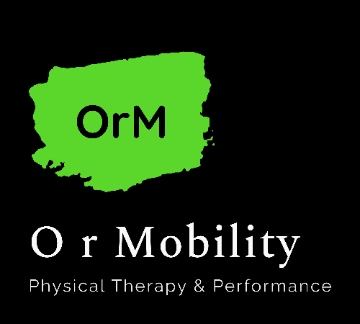You are a registered nurse who works for OrMobility Physical Therapy & Performance in Roseburg Oregon. You offer nutritional, sleep, and stress coaching and behavior techniques to improve the health and wellness of your clients. You are writing a blog article to help those who are investigating knowledge. Please write a 1000 word blog article that search engine optimized on google that discusses if alcohol negatively influences inflammation. Please suggest appropriate solutions to reduce alcohol in order to reduce inflammation.
Does Alcohol Negatively Influence Inflammation? Understanding the Impact and Finding Solutions
Inflammation is a natural and essential part of the body’s defense mechanism, but when it becomes chronic, it can lead to a host of health issues including heart disease, diabetes, and autoimmune disorders. One significant factor that can exacerbate inflammation is alcohol consumption. At OrMobility Physical Therapy & Performance in Roseburg, Oregon, we understand the importance of managing inflammation for overall health and wellness. In this blog, we explore the relationship between alcohol and inflammation and provide practical strategies for reducing alcohol intake to help manage inflammation effectively.
The Link Between Alcohol and Inflammation
Alcohol’s influence on inflammation is multifaceted. Here are some key ways alcohol can exacerbate inflammation:
- Immune System Disruption: Alcohol can interfere with the immune system, impairing its ability to fight infections and regulate inflammatory responses properly. This disruption can lead to an increased inflammatory state in the body.
- Gut Health: The gut microbiome, which plays a critical role in regulating inflammation, can be adversely affected by alcohol. Alcohol consumption can disrupt the balance of beneficial bacteria, leading to increased intestinal permeability (leaky gut). This condition allows toxins to enter the bloodstream, triggering inflammation.
- Liver Health: The liver processes and detoxifies alcohol. Chronic alcohol consumption can lead to liver inflammation and diseases such as alcoholic hepatitis and cirrhosis. Liver damage impairs its ability to regulate inflammatory processes effectively.
- Oxidative Stress: Alcohol metabolism generates reactive oxygen species (ROS), which cause oxidative stress. Oxidative stress damages cells and tissues, further contributing to inflammation.
Scientific Evidence
Multiple studies have demonstrated the link between alcohol consumption and increased inflammation:
- A study published in Alcohol found that even moderate alcohol consumption can elevate levels of inflammatory markers like C-reactive protein (CRP) in the body.
- Research in Alcohol Research: Current Reviews highlights how chronic alcohol intake disrupts gut integrity and promotes inflammation by increasing gut permeability.
Practical Solutions to Reduce Alcohol Consumption

Reducing alcohol intake can significantly help in managing and reducing inflammation. Here are some practical strategies to help you cut down on alcohol consumption:
- Set Clear Goals: Define specific, achievable goals for reducing alcohol intake. This could be limiting drinking to weekends, reducing the number of drinks per week, or setting a maximum number of drinks per occasion.
- Identify Triggers: Understand the situations, emotions, or social contexts that trigger your desire to drink. By identifying these triggers, you can develop healthier coping mechanisms.
- Choose Alternatives: Replace alcoholic beverages with healthier alternatives. Non-alcoholic beers, mocktails, herbal teas, or sparkling water with a splash of fruit juice can provide a satisfying substitute.
- Seek Support: Engage with support groups or seek professional help if you struggle to reduce alcohol on your own. Therapists, counselors, and groups like Alcoholics Anonymous offer valuable resources and support.
- Stay Hydrated: Drinking plenty of water throughout the day can help reduce cravings for alcohol and improve overall hydration, contributing to better health.
- Practice Mindfulness: Mindfulness techniques such as meditation, deep breathing exercises, and yoga can reduce stress and the urge to drink. These practices enhance relaxation and mental clarity.
- Adopt a Healthy Diet: A balanced diet rich in anti-inflammatory foods can help manage inflammation. Focus on consuming fruits, vegetables, whole grains, and omega-3 fatty acids from sources like fatty fish. Avoid processed foods and added sugars.
- Exercise Regularly: Physical activity is a powerful anti-inflammatory tool. Aim for at least 150 minutes of moderate exercise per week. Activities like walking, cycling, swimming, or yoga can reduce stress and improve health.
- Monitor Progress: Keep a journal or use a mobile app to track your alcohol consumption and progress towards your goals. Monitoring your progress helps you stay accountable and motivated.
- Reward Yourself: Celebrate your successes by rewarding yourself with non-alcoholic treats or activities you enjoy. Positive reinforcement strengthens your commitment to reducing alcohol intake.
Conclusion
Alcohol consumption can significantly impact inflammation and overall health. By understanding the relationship between alcohol and inflammation and implementing strategies to reduce alcohol intake, you can effectively manage inflammation and improve your well-being. At OrMobility Physical Therapy & Performance in Roseburg, Oregon, we are dedicated to supporting our clients in achieving optimal health through personalized nutritional, sleep, and stress management coaching.
If you’re ready to take control of your health and reduce inflammation, contact us today. Our team of experts is here to provide the guidance and support you need to achieve your health goals and enhance your quality of life.
References
- Alcohol Research: Current Reviews. “The Impact of Alcohol on the Gut-Liver Axis.” Alcohol Research: Current Reviews, vol. 38, no. 2, 2017.
- Rehm, J., et al. “Alcohol consumption and the risk of morbidity and mortality.” The Lancet, vol. 365, no. 9458, 2005, pp. 1385-1395.
- Szabo, G., & Saha, B. “Alcohol’s effect on host defense.” Alcohol Research: Current Reviews, vol. 37, no. 2, 2015, pp. 159-170.
By focusing on reducing alcohol consumption and adopting a healthy lifestyle, you can effectively manage inflammation and improve your overall health. At OrMobility Physical Therapy & Performance, we are here to support you every step of the way. Contact us to start your journey towards better health and wellness today.



